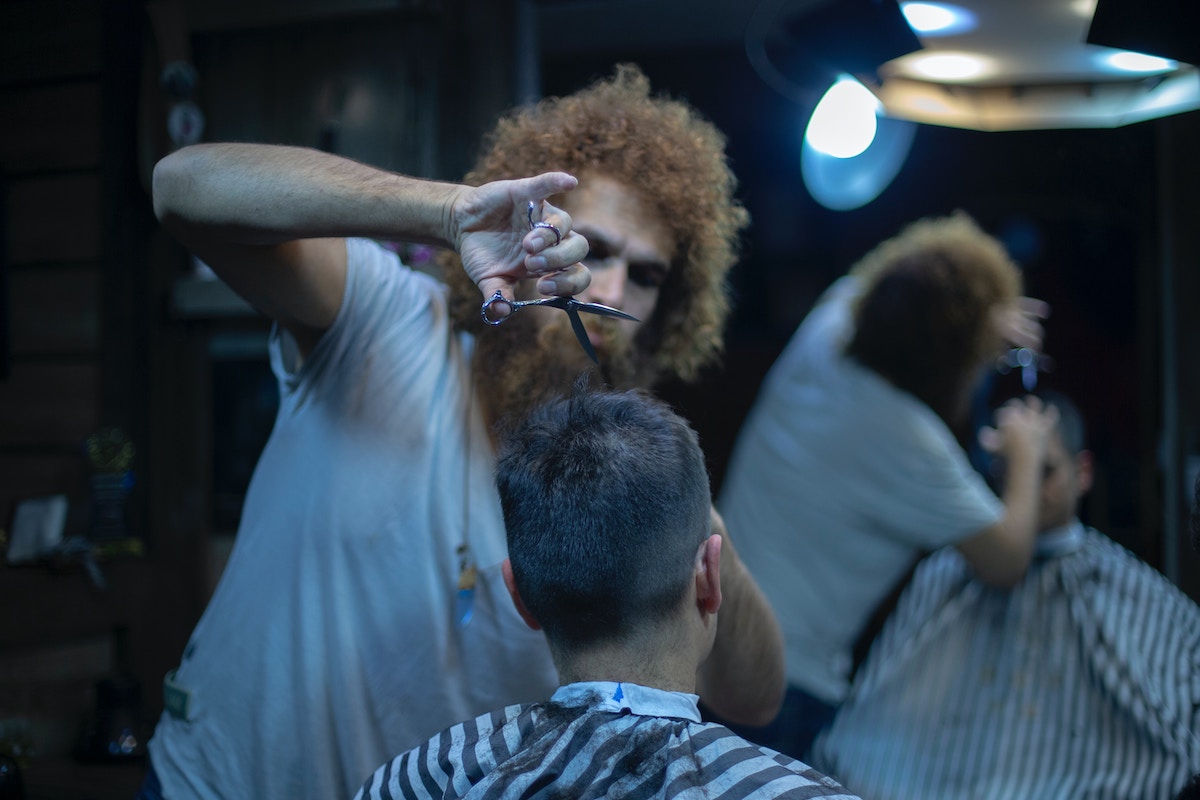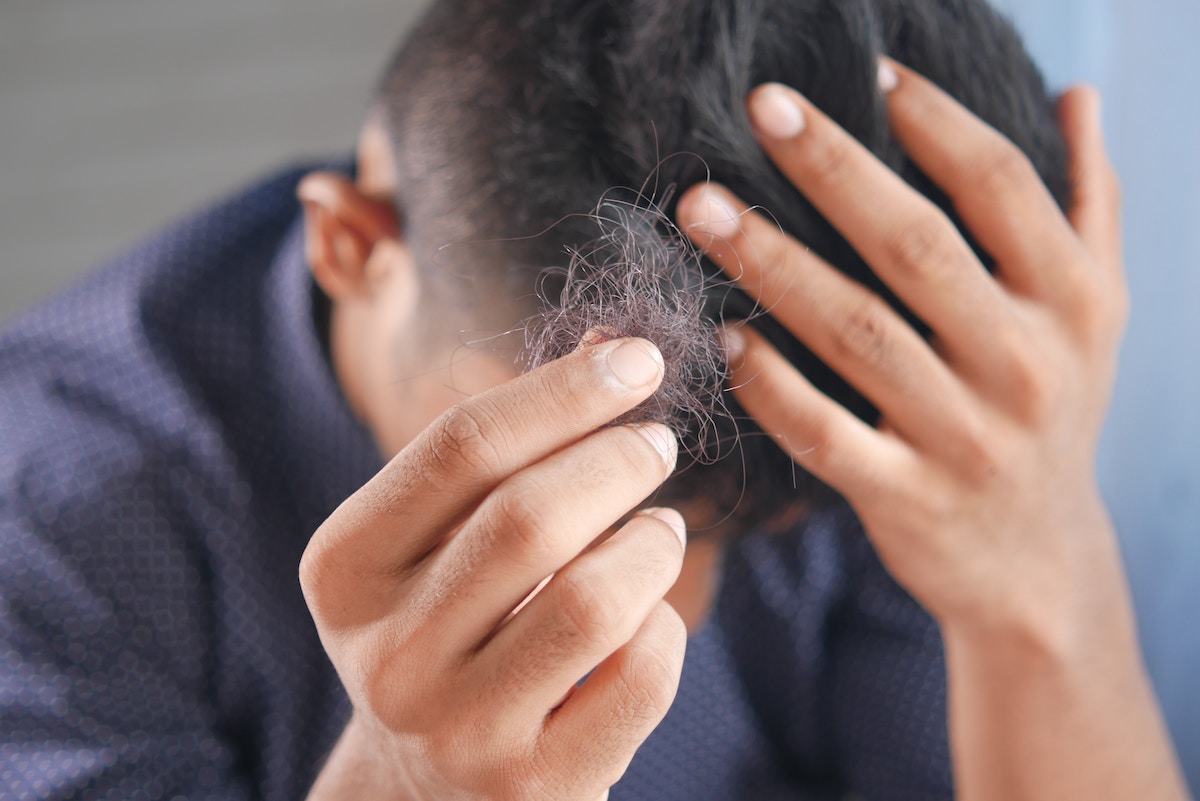
Perhaps you loved styling your hair every day, or maybe you barely noticed it until you realized it was almost gone.
Thinning hair and hair loss can be emotionally jarring. It’s a sign of the times — you’re getting older. Your body is changing. Is there anything that you can do about it?
If there’s a problem, there’s likely a product claiming it’s the best solution, especially in the grooming world. Tons of supplements and hair growth products promise to give you fuller, stronger locks. What’s the truth? It’s a bit — ahem — hairy.
We saved you some time — and perhaps even money — by asking experts to discuss hair loss treatment and thinning hair in men. They didn’t split hairs.
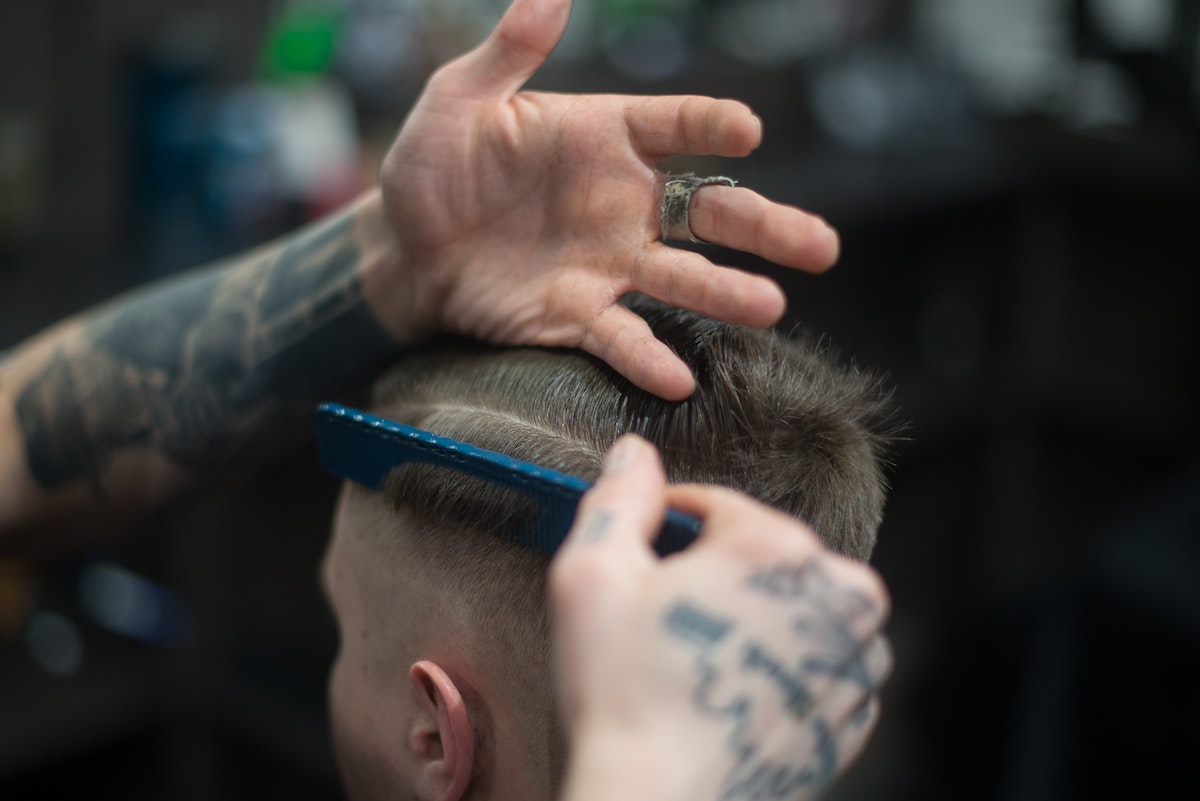
Why is my hair falling out?
Hair loss has many triggers, some of which are out of your control. However, understanding what’s going on on top of your head can help inform the best treatment course. Reasons for hair loss in men include:
- Hereditary. You may not have hit the gene-pool lottery for hair. People of both sexes are subject to inheriting their family’s hair-loss patterns.
- Emotional stress. The idea that late nights at work or certain family members are causing your hair to fall out may not be a euphemism. Stress can cause thinning hair.
- Physical stress. If you recently had a physically stressful event, such as an infection or high fever, you may lose hair.
- Drugs or therapies. Certain drugs or therapies such as chemotherapy can be life-saving but cause hair to fall out.
- Health conditions. Thyroid conditions, anemia, and autoimmune diseases like lupus can contribute to hair loss.
- Age. One of the most common culprits is age, and more than three-quarters of men show signs of baldness by the age of 70.
- Product use. Too much heat styling can damage hair and contribute to thinning.
If you’re concerned about sudden hair loss, your best bet is to talk to a healthcare provider to rule out underlying medical conditions.
Is it actually possible to reverse hair loss and thinning hair in men?
Sorry, but there’s not a straight answer to this common question. It depends on the situation.
“Your hair follicle does not just die,” says Alexia Donovan, the director of client services for Barber Surgeons Guild. “First, it goes through a process of miniaturization before remaining dormant and then dying.”
Donovan says that once the follicle is dead and gone, you’ll need to accept your thinning hair or seek restoration. Therefore, being proactive is critical.
“If you are proactive, you can catch hair in declining stages of health or dormancy, and oftentimes, there are treatment options available to revive these follicles and bring them back,” Donovan says.
Another expert agrees that all hope is not necessarily lost — and neither is your hair.
“Most of the time, hair loss is not an all-or-nothing process,” says Tiffany Young, the founder and CEO of thinhairthick.com and a certified trichologist, a person who specializes in problems with the scalp and hair. “There are different phases of hair loss — from [the] beginning, moderate, or severe — and keeping your hair healthy can be the difference [in] maintaining the hair that you have.”
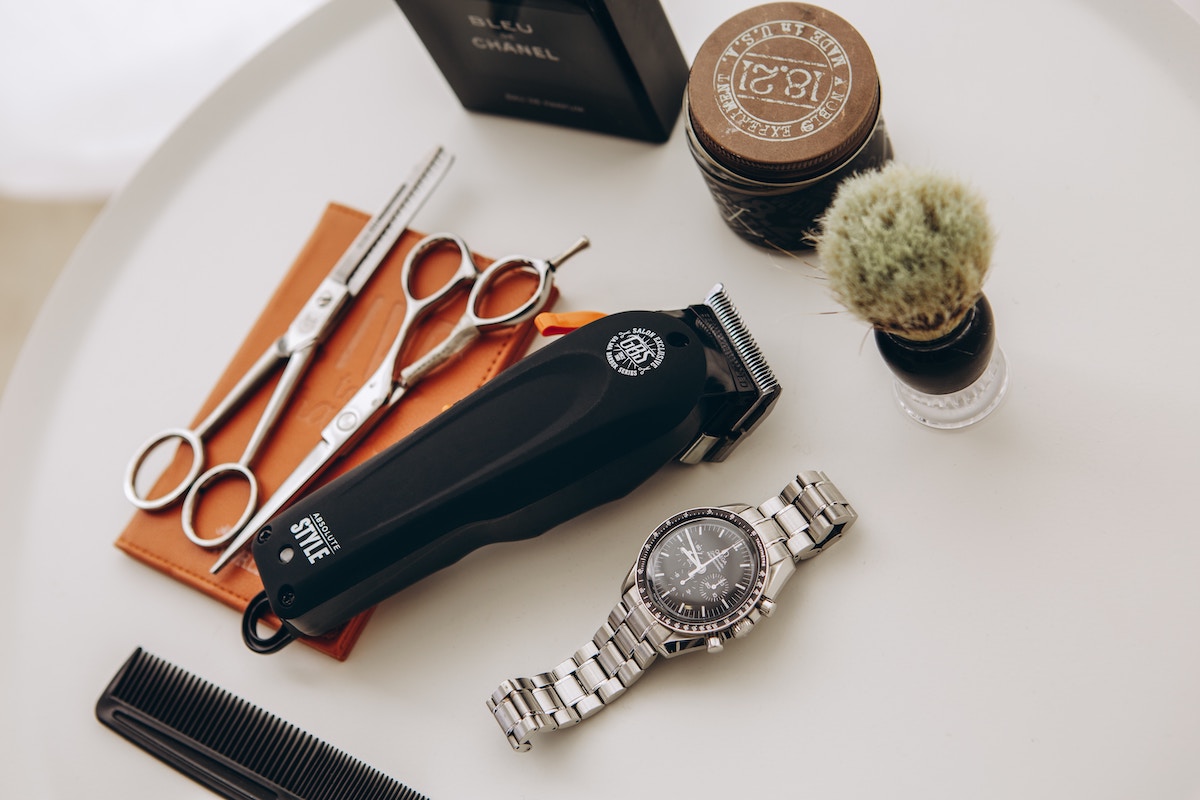
I want to start hair growth. What is the best option for hair loss treatment?
Again, this answer will depend, and a customized, evidence-based approach is vital. Though you may get targeted by marketing ads for hair growth products, it’s best to consult a provider first to get to the root of your specific hair loss causes.
“It’s important to consult a doctor or hair loss specialist to determine the cause of your hair loss and to develop an appropriate treatment plan,” says Viktor Holas, the founder of and a hairstylist with wisebarber.com.
Donovan agrees. “Talk to a doctor specializing in hair health and make a solid long-term plan,” she says.
What might the doctor prescribe? Holan says lifestyle and product tweaks may be a first-line hair loss treatment.
“Lifestyle changes like a healthy diet, stress management, and avoiding harsh hairstyles can . . . help to promote hair growth,” says Holas.
Holas says hair styling changes may include using hair products with natural oils. Laser therapy may also help if these tweaks don’t.
“Another option is to use laser therapy devices that use low-level laser energy to stimulate hair growth and thickness,” Holas says.
However, it may not be so simple. If your hair loss causes include alopecia, you’ll need more treatment.
“The key is to combat the DHT that is killing your hair follicles,” Young says.
Sorry, what?
“DHT is Dihydrotestosterone and the primary cause of male pattern baldness,” Young explains. “There are over-the-counter supplements, DHT-blocking shampoos, and prescription drugs that can all help to reduce the negative effects of DHT. One of the more common medications used is topical minoxidil.”
The National Institute of Health says there’s no cure for alopecia, but some treatments can slow hair loss or help it regrow more quickly.
Biotin is often put in shampoos and supplements and billed as a way to reverse hair loss. However, a 2017 review did not find significant evidence to support this common claim.
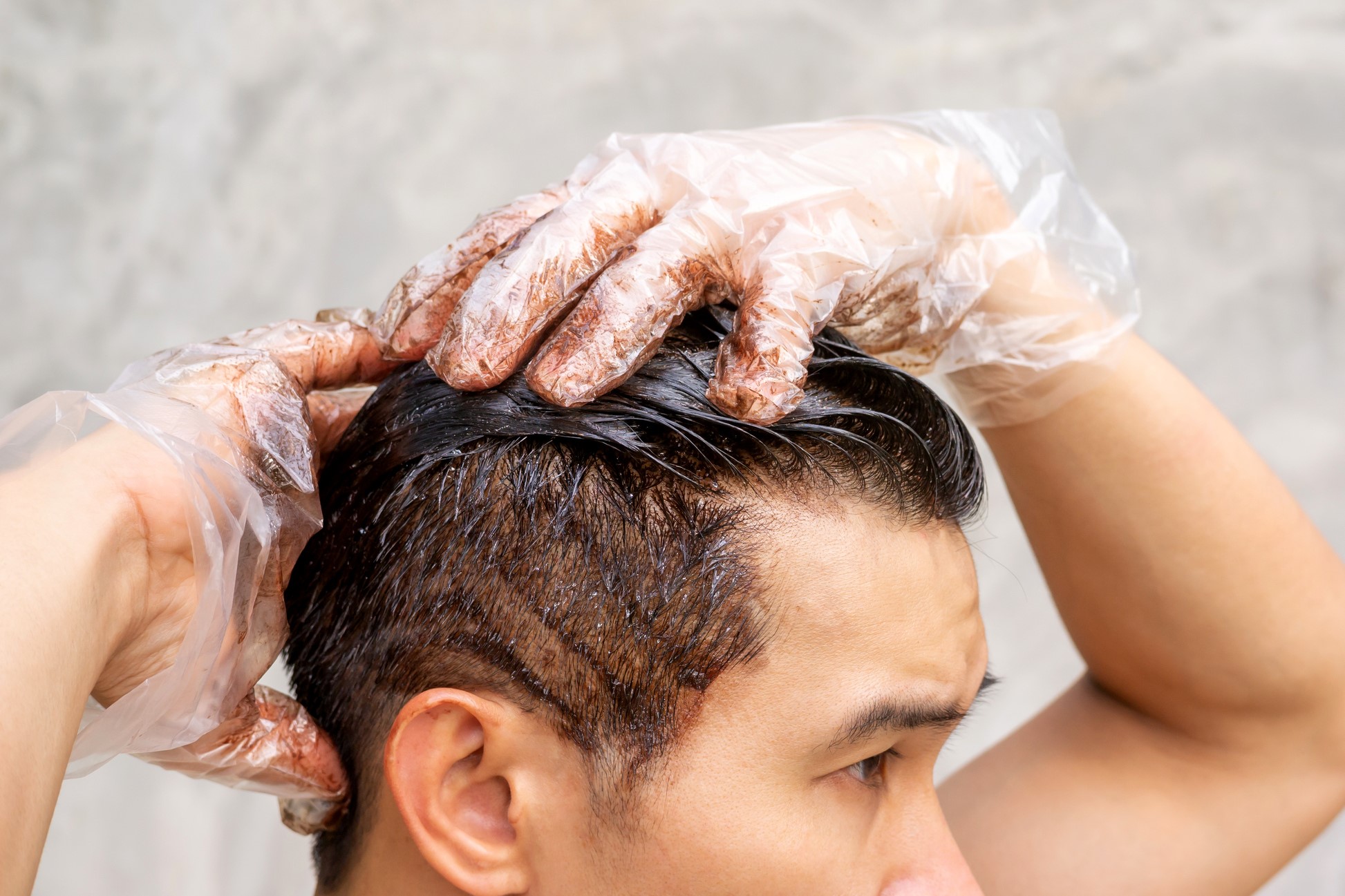
What shouldn’t I do if I notice thinning hair?
Experts share that a few “don’ts” can exacerbate thinning and make hair loss permanent.
Holas advises against:
- Using products with harsh chemicals or heat. Holas notes that these can damage hair and trigger breakage
- Washing hair too often. “[That] can strip it of its natural oils, making it dry and brittle,” Holas says.
- Ignoring the problem. “Early intervention can help to slow or halt hair loss,” Holas says.
Donovan agrees with Holas. If you notice your hair is thinning, seek help.
“Hair loss is progressive,” she says. “If you wait on starting something, today will be the best hair day you have. It is much easier to slow down or stop hair loss in [the] early stages than wait and have your only option be a hair restoration procedure.”
Hair loss can be overwhelming and stressful. The bad news: Stress is one of a few common hair loss causes. Others include using harsh chemicals, heat styling, and washing hair too often. Those issues are easily fixable, and you may notice lusher locks soon after turning down the heat on your blow dryer. Conditions like alopecia are not curable, but you may be able to slow or delay hair loss. There are many over-the-counter hair growth products and supplements on the market, but seeking help from a qualified professional is critical.
“With so many readily available solutions, there is something that can help almost everyone. The key is finding an honest, ethical, experienced doctor specializing in hair to help create the plan and be there with you along the way,” Donovan says.
